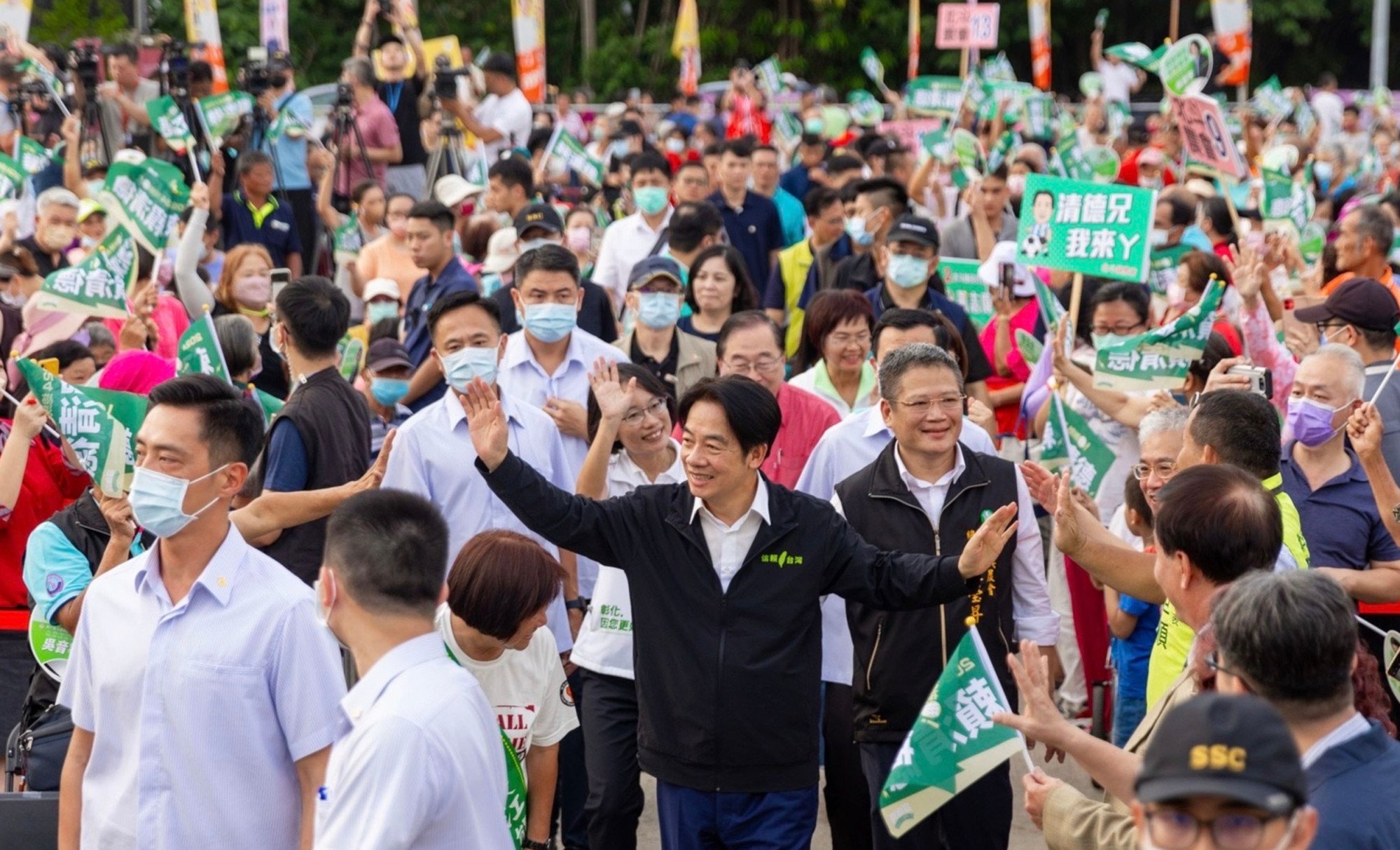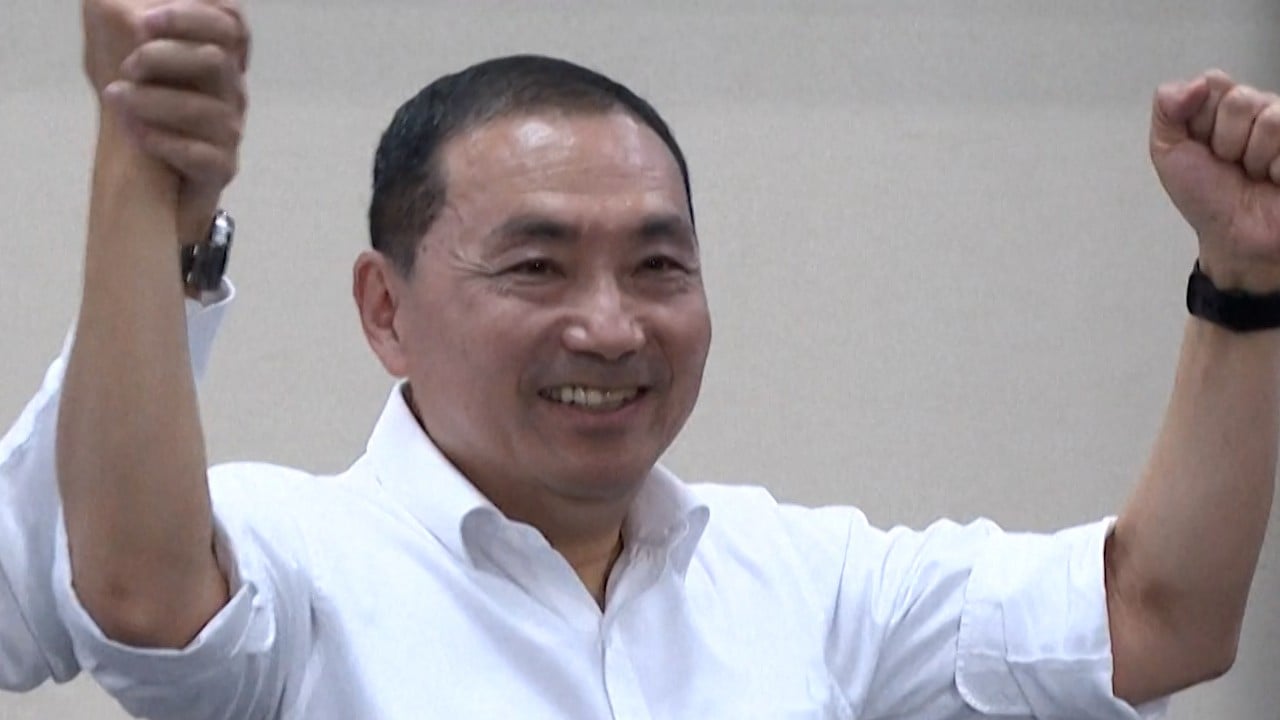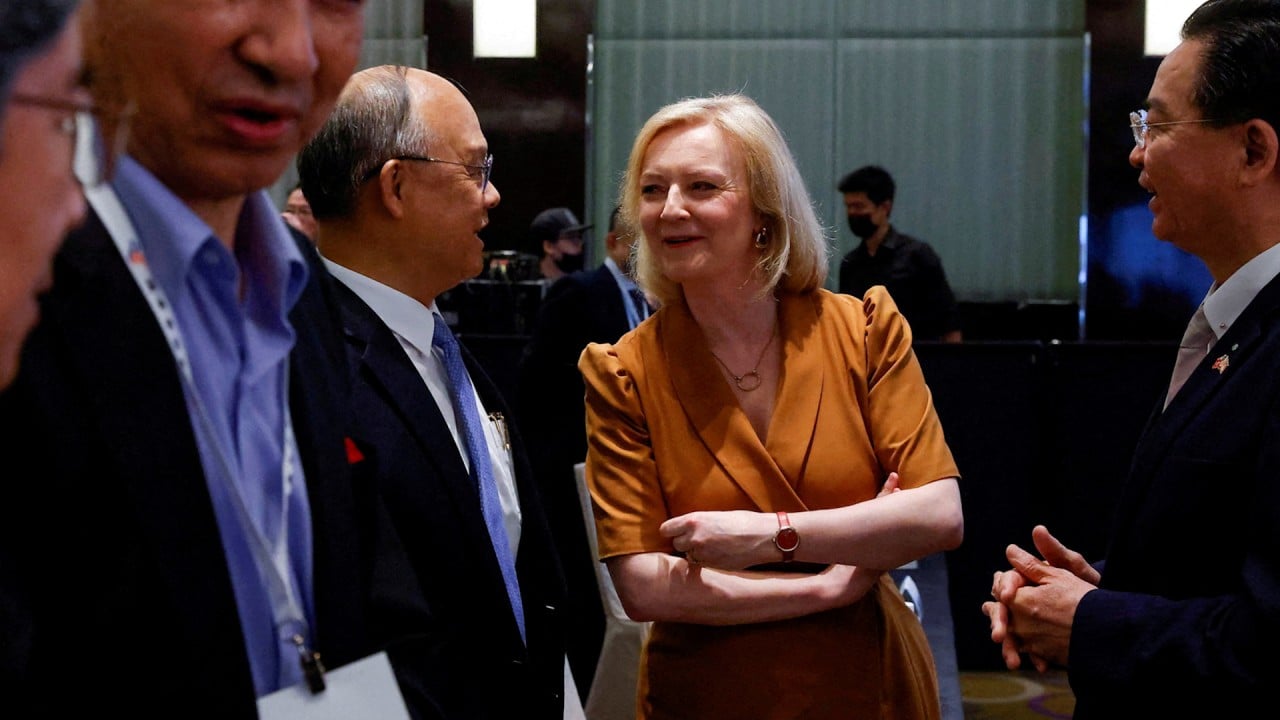Even after the KMT confirmed in late July it would not change its decision to nominate New Taipei mayor Hou Yu-ih as its presidential candidate despite his relatively poor showing in the race, there have been no signs of Gou giving up his bid.
“I also want to let my US friends understand that the mainstream opinion in Taiwan is ‘peace but not war’ and that Taiwan does not want to be the next Ukraine,” he wrote in a Facebook post.
Advertisement
Gou said that because of his sense of mission, he had no regret working with like-minded friends to “pull Taiwan back to the road of peace from the brink of war” – despite constant verbal attacks and smearing by his opponents.
To counter the pro-independence green camp led by the DPP, he also called for the formation of a grand alliance of the main opposition camp, which includes the KMT, the Taiwan People’s Party (TPP) and others.
“In the future, I will continue to walk through each piece of land in Taiwan … offering my visible and invisible assets to ensure that whoever is insisting on cross-strait peace, economic prosperity and clean politics … will be able to win the [presidential] election,” he said.
Analysts took Gou’s call for the alliance as well as his vow to bring peace to Taiwan as strong indications of his desire to run for president.
Advertisement
“Compared with an opinion piece by him published in The Washington Post last month, Gou’s remarks read even more like a proclamation of his presidential bid,” said Shih Cheng-feng, a political-science professor at National Dong Hwa University in Hualien.
Advertisement
Beijing regards Taiwan as its territory, which must be brought under its control, by force if necessary.
Terry Gou’s op-ed hints he hasn’t ruled out Taiwanese presidential run: analysts
Terry Gou’s op-ed hints he hasn’t ruled out Taiwanese presidential run: analysts
Cross-strait tensions have risen since the DPP’s Tsai Ing-wen was elected president in 2016 and refused to accept Beijing’s one-China principle.
Advertisement
As a result, Beijing suspended cross-strait talks and official exchanges with the island, while ramping up pressure on Taipei by staging war games in the region and poaching Taiwan’s allies. Like most countries, the US – Taiwan’s biggest informal ally and arms supplier – does not recognise the island as an independent state but is opposed to the unilateral change of the cross-strait status quo by force.
Shih said Hou’s relatively poor showing in various opinion polls had given Gou fuel to convince KMT supporters he could fare better in the electoral race.
“But if Gou joined the contest, it would make January’s election a four-way race that could split the opposition’s votes and benefit Lai,” he said, adding it was unlikely for the KMT to replace Hou with Gou, now that the main opposition party had already confirmed the New Taipei mayor as its nominee.
For now, there are three contenders in the race, with the DPP’s Lai maintaining a lead against Ko Wen-je, a former Taipei mayor who heads the TPP, and Hou of the KMT.
Advertisement
According to opinion polls, support for Lai has remained at around 33-36 per cent, sitting above Ko’s 28-30 per cent and Hou’s 21-24 per cent.
If Gou joined the race, support for Lai would sit at 30.46 per cent, Ko would have 24.71 per cent, Gou 17.34 per cent and Hou 16.92 per cent, according to an opinion poll by online media organisation Newtalk on Tuesday.
On Wednesday, Ko said that if Gou ran for president, Lai would be sure to win.
“Mine would be zero,” he said of his chance of winning. “All of the three [opposition] candidates [him, Hou and Gou] would lose, while Lai would 100 per cent win the race.”

Liao Da-chi, a professor of political science at National Sun Yat-sen University in Kaohsiung, agreed that if Gou threw his hat into the ring, it would make things tougher for Ko.
When speaking about younger voters who do not like either the DPP or KMT, she said: “The perceived votes for Gou overlap those of Ko, and it would make the contest stiffer for Ko if Gou took part in the race.”
Liao said that being a successful businessman, Gou was approaching his political aspirations in a similar vein.
“Actions like wooing away KMT local council speakers and heavyweights and making speeches and statements showing he has a better vision than Hou in terms of leadership obviously is a strategy to force the KMT to compromise,” Liao said, likening the approach to a business trying to merge with another company.
But Stephen Tan, managing director of International Policy Advisory Group, a Taipei-based geopolitical risk and policy consulting firm, said it remained to be seen if Gou would actually run.
‘Super shock waves’: Taiwan People’s Party may shake up politics, poll shows
‘Super shock waves’: Taiwan People’s Party may shake up politics, poll shows
“If Gou announces his bid to run as an independent after he returns to Taiwan, there should be no problem for him to collect endorsements from around 300,000 eligible voters needed to register for the race,” he said.
Gou could also establish a new political party to nominate him to run for president.
But Tan said with five months until the election, a lot of things could still change.
Even from September, when he would need to start collecting endorsers’ signatures, to the time election authorities would approve his application in November, things would still change as Gou would need to coordinate with the KMT and TPP in forming a coalition, Tan said.
“Such a formation would be difficult when it comes to the decision on who will be the leader, but if the coalition is able to be formed, it would then be a big headache for Lai,” Tan said.
Future opinion polls could also affect the race, with Gou able to withdraw in the last moments and throw his support behind Lai’s opponents if he thought he was certain to lose.
Advertisement




